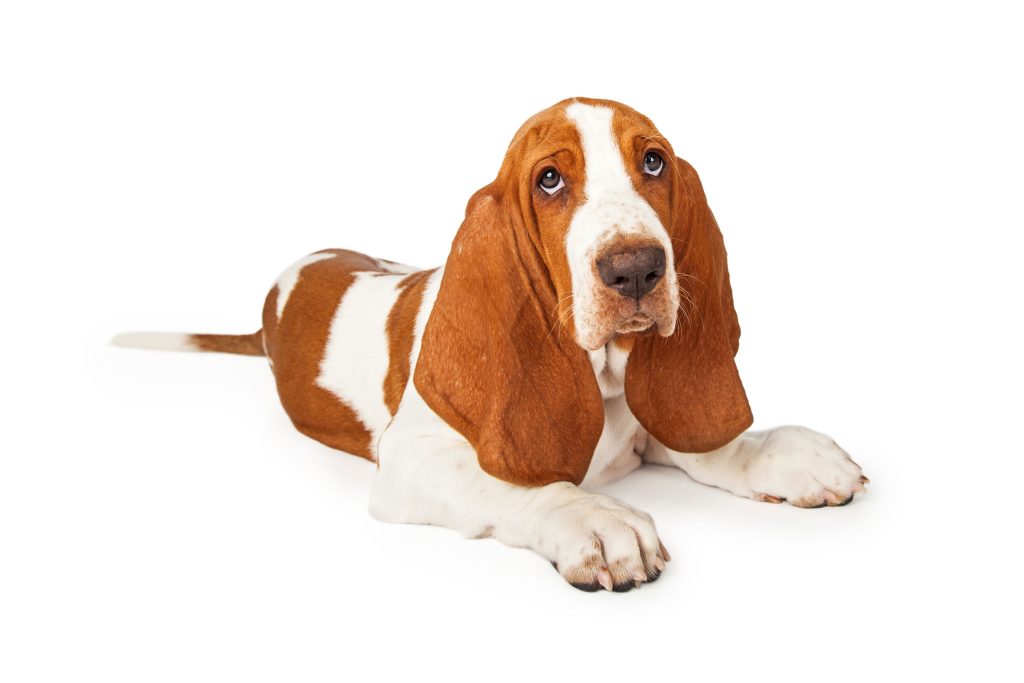
If you're someone who suffers from allergies but still wants to own a dog, you may have wondered if certain breeds are hypoallergenic. Basset Hounds are a popular breed, known for their long ears and droopy eyes, but are they hypoallergenic? Let's take a closer look.
When it comes to selecting a new furry friend, many people consider hypoallergenic dogs. But what does it actually mean for a dog to be hypoallergenic? Let's explore this topic in more detail.
When we say that a dog is hypoallergenic, we mean that the dog is less likely to cause an allergic reaction in humans. People with allergies typically react to proteins found in a dog's dander (dead skin cells), saliva, and urine. Dogs that shed less or have hair instead of fur are often considered to be more hypoallergenic because they produce fewer allergens and shed less dander.
It's important to note that no dog breed is completely hypoallergenic, and even dogs that are considered hypoallergenic can still cause an allergic reaction in some people. However, certain breeds are less likely to cause allergic reactions than others.
If you or someone in your family has allergies, it's important to spend time around the breed of dog you're considering before bringing them home to see if there is any allergic reaction. Additionally, keeping your home clean and free of allergens, like regularly vacuuming and washing your dog's bedding, can also help reduce the likelihood of an allergic reaction.
It's also worth noting that hypoallergenic dogs still require regular grooming and maintenance, just like any other dog. So, while they may shed less and produce fewer allergens, they still require proper care to maintain their coat and skin health.
Basset Hounds are known for their cute droopy faces, short legs, and long ears. They are loved for their calm temperament and affectionate personality. But, one concern that many potential owners may have is whether Basset Hounds shed a lot.
The answer is yes, Basset Hounds do shed a lot. They have a short, dense coat that sheds throughout the year, and they shed even more during the spring and fall when they are transitioning between seasons. They are considered moderate to heavy shedders and require regular grooming to keep their shedding under control.
It's important to note that shedding is a natural process for dogs and is not specific to Basset Hounds. All dogs shed to some degree, and the amount of shedding can depend on various factors such as breed, health, and environment.
Regular grooming can help manage a Basset Hound's shedding. Brushing their coat regularly can help remove loose fur and prevent mats and tangles. Bathing them every few months can also help remove loose fur and keep their coat healthy and shiny. Additionally, feeding them a balanced diet and providing them with plenty of water can help keep their coat in good condition and reduce excessive shedding.
When it comes to allergies, it's not just about the shedding. Dander, which is tiny flakes of skin that all dogs shed, can also be a major culprit for triggering allergies. Dander could have some proteins that cause an allergic reaction in some people.
While no dog breed is completely hypoallergenic, some produce less dander than others, making them a better choice for people with allergies. Unfortunately, Basset Hounds are not one of those breeds. They produce a moderate amount of dander, so they are not a great choice for allergy sufferers.
However, it's important to remember that allergies are not solely caused by dander. Other allergens like saliva and urine can also be problematic for some people. In addition, some people may be more sensitive to certain breeds than others. Therefore, if you are considering getting a Basset Hound but have allergies, it's best to spend some time around the breed to see how your body reacts before making a final decision.
It's also important to note that regular grooming can help reduce the amount of dander a Basset Hound produces. Frequent brushing and bathing can help remove loose hair and dead skin cells, which can minimize the amount of dander in the environment. However, it's important to remember that grooming alone is not enough to completely eliminate the risk of an allergic reaction.
Despite being a lovable and adorable breed, Basset Hounds are not considered hypoallergenic. Although they shed from a moderate to a high degree, they produce dander, which is a common allergen among humans.
Dander is a tiny, almost invisible, skin flake that is produced by all dogs and is the primary cause of allergies in people. It is often spread through the air and can remain in furniture, carpets, and clothing, making it difficult to avoid.
Although there is no such thing as a completely hypoallergenic dog, certain breeds are quite less likely to cause an allergic reaction. These breeds typically have a single-layered coat and produce less dander than others. However, Basset Hounds have a thick, short-haired, double-layered coat that sheds seasonally and can produce a considerable amount of dander.
That being said, every person's sensitivity to allergens can vary, so some people may have a milder allergic reaction to Basset Hounds than others. For that reason, it would be best to spend some time with a Basset Hound before bringing one into your home, especially if you have allergies.
If you or a family member suffer from allergies, it's important to consider the potential impact of owning a Basset Hound. While they may not be hypoallergenic, their loving and loyal personalities may be worth the extra effort to manage allergens in your home.
If you have a Basset Hound or are considering getting one, it’s important to know that they are not hypoallergenic dogs. One of the biggest reasons for this is their shedding. However, shedding can be managed with proper care and attention to your dog's needs. The following are some factors that can contribute to your Basset’s excess shedding:
By taking steps to manage your Basset Hound's shedding, you can help keep your home and family comfortable and reduce allergy symptoms.
If you love Basset Hounds but have allergies, don't worry! There are steps you can take to help manage your allergies while still enjoying the company of a Basset.
In conclusion, Basset Hounds are not hypoallergenic. They certainly shed and produce dander, which can trigger allergies in sensitive individuals. If you have allergies but love Basset Hounds, there are steps you can take to minimize your symptoms and enjoy the company of this lovable breed.
In conclusion, while Basset Hounds are not considered hypoallergenic dogs, they can still make great pets for people with allergies with some extra effort and precautions. It's important to keep in mind that there is no such thing as a completely hypoallergenic dog breed, and individual reactions can vary.
If you are someone with allergies who loves Basset Hounds, there are several steps you can take to minimize your exposure to allergens, including regular grooming and cleaning of your dog and their living environment, using air purifiers, and consulting with your allergist for personalized advice.
Overall, Basset Hounds are a lovable and loyal breed with a distinctive appearance and personality. While they may not be the best choice for those with severe allergies, with the right care and attention, they can still make wonderful companions for many people.

Pet's Better Life is part of Pristine Media, the media division of Pristine Group LLC.
Copyright 2019-2023 Pristine Group LLC. All images and media used in this website are provided by Adobe Stock. Every image is properly licensed for use on this website.